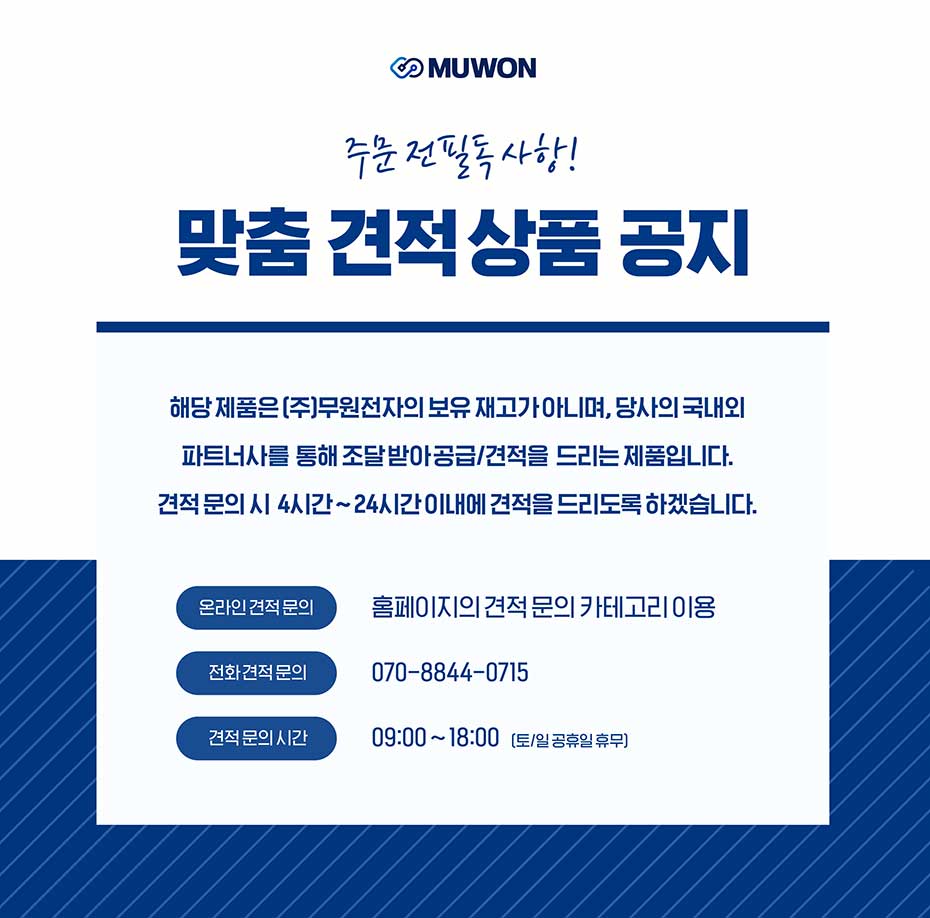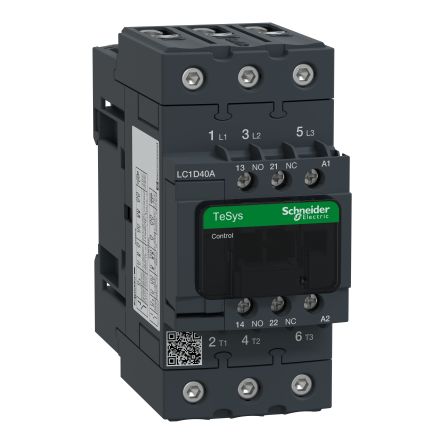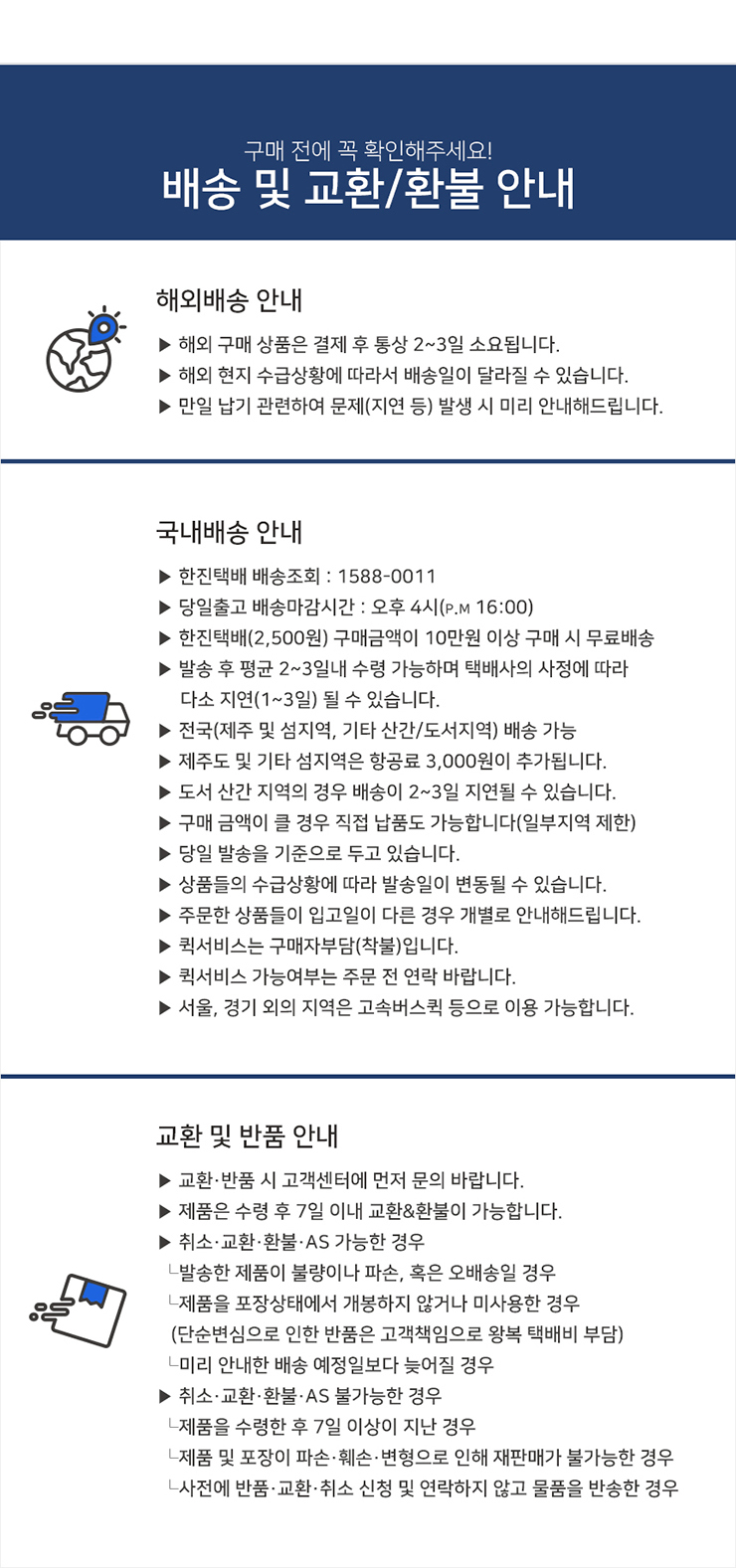
■ 제품필수정보
| 제조사 |
Schneider Electric |
| 제조사품명 |
LC1D40AD7 |
| 간략설명 |
Schneider Electric TeSys D LC1D Contactor, 42 V ac Coil, 3 Pole, 3NO |
■ 제품사양
Coil Voltage = 42 V ac Number of Poles = 3 Normal State Configuration = 3NO Range = TeSys D Width = 55mm Depth = 120mm Better World Product = Yes
최대 작동 온도 = +60°C Schneider Electric LC1D TeSys D Contactors. TeSys D Contactors from Schneider Electric combine long mechanical and electrical life to offer a high reliable contactor. The range has been designed for integration in control systems and can be used to create motor starters for any type of application. The TeSys D contactors offer quick simple setup while maintaining compliance with international standards. Features and Benefits. Built-in auxiliary contacts for added switching capability. Screw connections: IP20 finger-safe terminals with both North American and International terminal markings. Can be panel mounted with screws or DIN Rail mounted. Bidirectional peak limiting diode suppressor to protect the coil. Easily installed accessories. Flexible control circuit to suit a wide range of applications. What does the utilisation category AC1 and AC3 mean for the TeSys contactors? Contactor utilisation categories define the current making and breaking values, based on the type of load to be controlled and the operating cycle conditions. AC-1: This applies to all AC devices with a power factor of at least 0.95. Example of use: resistive load, heating, distribution. AC-3: This applies to squirrel cage motors where breaking occurs while the motor is running. Example of use: all squirrel cage motors, lifts, escalators, conveyors, bucket elevators, compressors, pumps, mixers, air conditioning units. What accessories are available? Auxiliary contact blocks with serrated wiping action. Front mount dust tight auxiliary contact blocks. Pneumatic time delay blocks. Transient voltage surge suppressors. Interface modules and electronic timers. Mechanical latching blocks. Is the TeSys D range a double break pole type contactor? Yes, the Tesys D range uses linear translation movement that provides double breaking of the poles.







